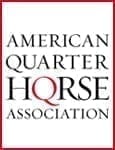All stallions exposed to 25 or more mares during the 2014 breeding season will be required to have a genetic disease panel test on file with AQHA prior to the registration of their foals resulting from breedings occurring after January 1, 2014. This rule was approved by the AQHA Stud Book and Registration Committee at the 2013 AQHA Convention in March.
Additionally, the Stud Book and Registration Committee recommended that all stallions will be required to have a genetic disease panel test on file with AQHA prior to the registration of their foals resulting from breedings occurring after January 1, 2015.
The AQHA members attending the convention membership business meeting agreed with the Stud Book and Registration Committee’s recommendation, and the recommendation was adopted by the AQHA Board of Directors. These new rules will be denoted as Rule REG108.4 and REG108.5 in the 2014 AQHA Official Handbook of Rules and Regulations.
AQHA offers a panel test for five genetic diseases – glycogen branching enzyme deficiency (GBED), hereditary equine regional dermal asthenia (HERDA), hyperkalemic periodic paralysis (HYPP), malignant hyperthermia (MH) and type 1 polysaccharide storage myopathy (PSSM1). These panel tests, which are processed by the University of California-Davis, were offered for the first time in February 2012.
AQHA endeavors to educate its membership and protect the welfare and integrity of the breed. And at the convention, the Stud Book and Registration Committee approved new rules that will further accomplish all three aims. The report from the committee is the only AQHA committee report that is not subject to AQHA Executive Committee approval, meaning all decisions made by the AQHA Board of Directors regarding the Stud Book and Registration Committee’s recommendations are final.
In addition to the genetic disease panel test requirements, the Stud Book and Registration Committee once again considered a rule change proposal concerning cloning. The proposal requested that various AQHA rules be amended so as to allow for the registration of the offspring of horses produced through somatic cell nuclear transfer, a particular form of cloning. After discussion, the Stud Book and Registration Committee recommended that the proposal be denied. AQHA members attending the convention membership business meeting agreed with the committee’s recommendation.
The Board of Directors also agreed with the committee’s recommendation and denied the proposal.
AQHA 40-year breeder Carol Rose was re-elected as the Stud Book and Registration Committee chairwoman at the convention and will fulfill her third term in the position for 2013-14. The AQHA members that make up the Stud Book and Registration Committee represent a great cross-section of the membership, Rose said.
“Everybody on that committee has a lot of knowledge of the American Quarter Horse and cares about the American Quarter Horse,” she added.
The AQHA Stud Book and Registration Committee’s report from the 2013 AQHA Convention is available for viewing at www.aqha.com/convention.
Ordering Genetic Panel Tests
To help breeders make informed decisions, AQHA now offers a panel test for five genetic diseases – glycogen branching enzyme deficiency, hereditary equine regional dermal asthenia, hyperkalemic periodic paralysis, malignant hyperthermia and type 1 polysaccharide storage myopathy.
When the test is ordered, AQHA will send a DNA kit, and the owner will mail it to the Veterinary Genetics Laboratory at the University of California-Davis for testing. Once the tests are complete, AQHA will notify the owners and put the results on the horse’s record.
The test cost $85 for members and $125 for nonmembers. For the panel test in conjunction with the DNA test required for most breeding stock, the cost is $105 for members.
The effects of these diseases are wide-ranging, from mild and manageable to severe and terminal. Passing these diseases on to successive generations often causes unnecessary suffering and also leads to financial losses for breeders.
To order your test, call AQHA at (806) 376-4811 or download the genetic test order form.









